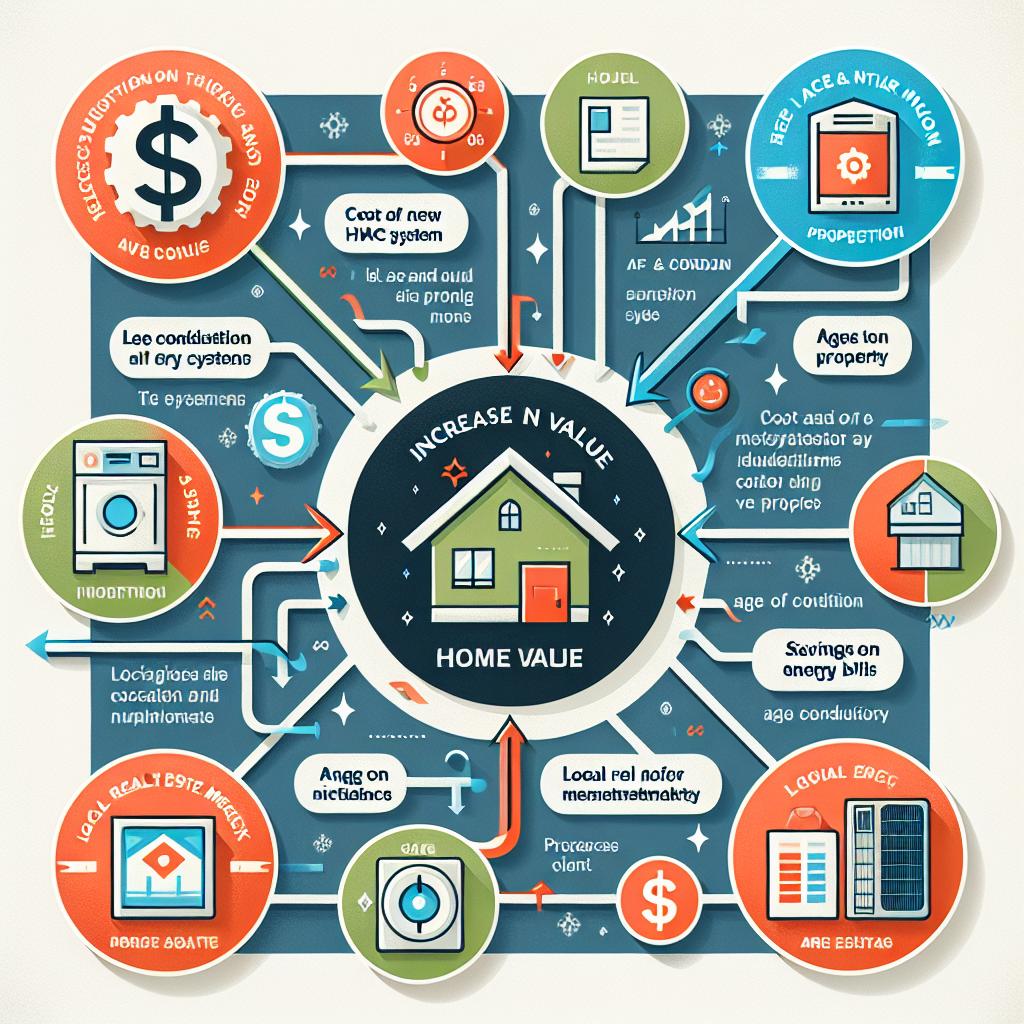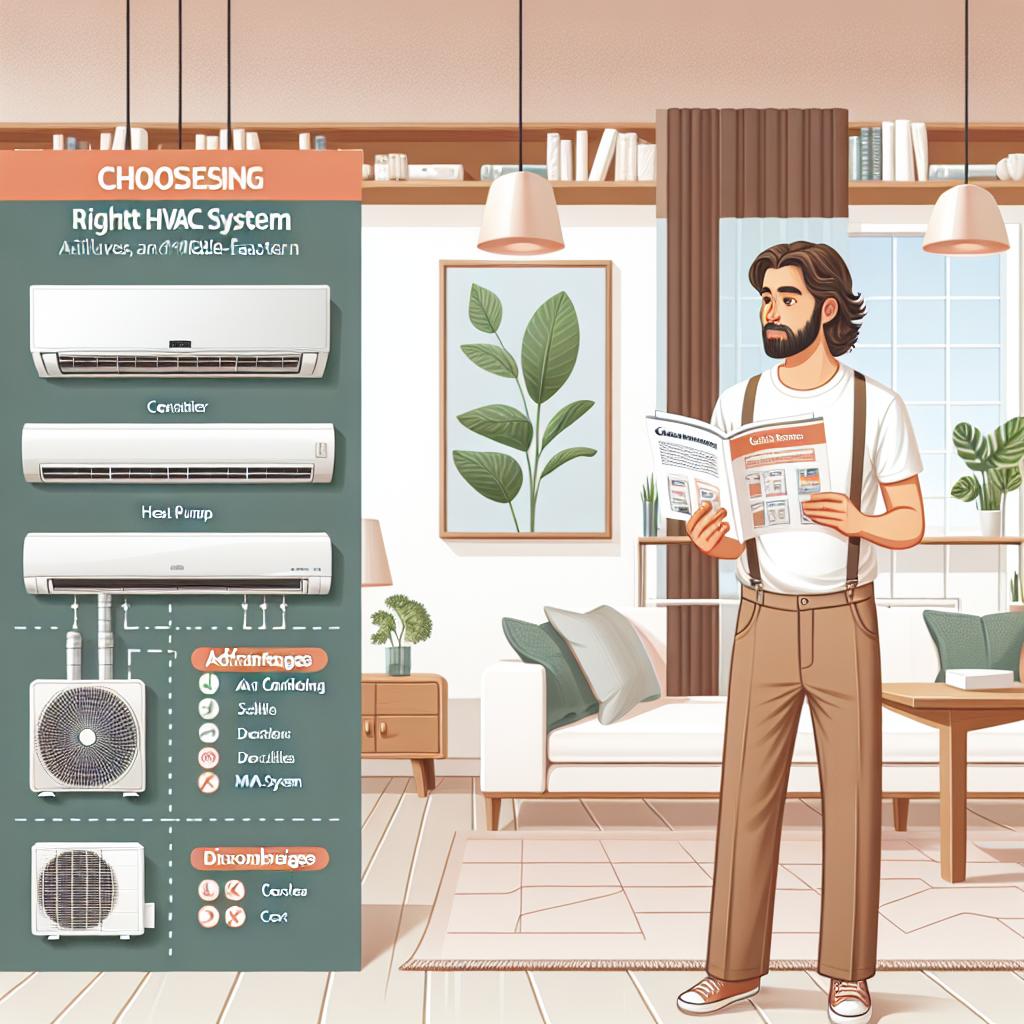When it comes to enhancing the value of a home, various upgrades can play a significant role—from a fresh coat of paint to a lavish kitchen remodel. Among these noteworthy improvements, the installation of a new HVAC system often stands out, not merely for its comfort-enhancing benefits but also for its potential impact on property value. As homeowners seek to create inviting, energy-efficient living spaces, understanding the financial implications of a modern heating, ventilation, and air conditioning system becomes increasingly important. In this article, we will explore how much a new HVAC system can contribute to the value of a house, delving into factors such as energy efficiency, market trends, and buyer preferences. By unveiling the intersection of comfort and investment, we aim to provide clarity for homeowners considering this crucial upgrade.
Understanding the Financial Impact of Upgrading Your HVAC System
When considering the financial implications of upgrading your HVAC system, it’s essential to look beyond the immediate costs of purchase and installation. A new HVAC unit not only enhances the comfort level of your home but can also lead to significant long-term savings. Homeowners can expect reductions in energy bills, as modern systems often operate more efficiently than older models. Key financial benefits include:
- Lower utility expenses due to increased efficiency
- Potential tax credits or rebates for high-efficiency systems
- Reduced maintenance costs over time
Moreover, upgrading your HVAC system can directly affect your property value. According to various real estate studies, homes with updated heating and cooling systems tend to attract more buyers and can command higher sale prices. Below is a table highlighting the estimated return on investment (ROI) for HVAC upgrades in the housing market:
| HVAC Upgrade Type | Average Cost | Expected ROI |
|---|---|---|
| Central Air Conditioning | $3,000 - $7,000 | 50% – 70% |
| High-Efficiency Furnace | $2,500 - $6,000 | 70% – 90% |
| Heat Pump Installation | $4,000 - $8,000 | 60% – 80% |
The investment in an upgraded HVAC system can provide financial advantages that go far beyond energy savings and enhanced comfort; it can truly elevate your home’s market appeal and resale value.

Factors Influencing Home Value Boost from HVAC Installation
The boost in home value following an HVAC installation can vary significantly due to several influencing factors. Home location plays a crucial role; properties in climates that demand consistent heating and cooling often see a more considerable increase in value. Additionally, the age and condition of the current system can impact perceived value. A home boasting an outdated or inefficient HVAC system can deter potential buyers, whereas a modern, energy-efficient unit can be a major selling point. Other important considerations include:
- Energy Efficiency Ratings: Higher ratings can attract eco-conscious buyers.
- Brand Reputation: Well-known brands often carry a premium value.
- Installation Quality: Professional and thorough installation can enhance overall system performance.
Furthermore, the overall floor plan and size of the home can affect how much value HVAC installation adds. Homes with larger square footage may need more powerful systems, thus elevating installation costs. A well-designed, flexible HVAC setup can effectively cater to various rooms, adding to the overall comfort and, consequently, the resale value of the home. Below is a table summarizing key aspects that can enhance value post-installation:
| Factor | Impact on Home Value |
|---|---|
| Location | High demand in extreme climates |
| Energy Efficiency | Attractive to environmentally-focused buyers |
| System Brand | Reputable brands may increase desirability |
| Installation Quality | Professional installs ensure optimal performance |
| System Flexibility | Adaptable systems add to comfort |

Maximizing Return on Investment Through Energy Efficiency
Investing in a new HVAC system can significantly enhance your property’s value, particularly when it comes to attracting potential buyers. Many homebuyers prioritize comfort and energy efficiency, making a modern HVAC unit an enticing feature. With the shift towards environmentally friendly solutions, properties equipped with energy-efficient systems often see a higher return on investment. When you introduce a high-efficiency HVAC system, you’re not just upgrading the heating and cooling capabilities; you’re also decreasing utility bills and improving indoor air quality. These factors can all contribute to a home’s overall market appeal.
In terms of tangible benefits, here are some essential points to consider:
- Energy Savings: New systems can reduce energy bills by up to 20%, making the home more attractive.
- Longevity: A new HVAC system typically lasts 15-20 years with proper maintenance.
- Increased Comfort: Better temperature control enhances daily living conditions.
Incorporating these enhancements not only boosts the immediate value of your home but also transforms it into a long-term investment. The table below outlines the potential financial benefits of transitioning to a new HVAC system:
| Benefit | Estimated Value Increase |
|---|---|
| Energy Bill Savings | $500/year |
| Increased Home Value | 5-10% |
| Tax Credits/Rebates | $200-$2,000 |
By understanding these points, homeowners can make informed decisions that enhance their home’s value while promoting energy-efficient living, ultimately resulting in a sustainable investment that pays off over time.

Guidelines for Choosing the Right HVAC System for Your Property
When selecting the ideal HVAC system for your property, it’s essential to consider several key factors that will not only affect the system’s performance but also its impact on your home’s value. Start by assessing the size of your property, as a unit that is too small will struggle to heat or cool effectively, while one that is too large may cycle on and off too frequently, leading to inefficiency and increased wear. Additionally, evaluate the climate in your area, as a unit tailored to your specific weather conditions will operate optimally and improve energy efficiency. The type of system—whether a central air system, ductless mini-splits, or heat pumps—should be chosen based on your home’s architectural layout and existing ducts.
Another critical factor is the energy efficiency rating of the HVAC system. Look for models with high SEER (Seasonal Energy Efficiency Ratio) and AFUE (Annual Fuel Utilization Efficiency) ratings, as these systems not only lower your utility bills but also enhance your property’s market appeal. Moreover, consider the brand reputation and warranty options; investing in a reputable brand with strong warranty coverage can safeguard against future repair costs. Lastly, consult with an HVAC professional to better understand your specific needs and to ensure a proper installation, which plays a significant role in determining both performance and longevity.
Q&A
Q&A: How Much Does a New HVAC System Add to the Value of a House?
Q1: What is an HVAC system, and why is it important for homeowners?
A1: An HVAC system, which stands for heating, ventilation, and air conditioning, is essential for creating a comfortable living environment. It regulates indoor temperature, air quality, and humidity levels, making it a crucial aspect of any home. Potential buyers often view a modern and efficient HVAC system as a sign of a well-maintained property.
Q2: How much value does a new HVAC system typically add to a home?
A2: While the added value can vary based on factors such as location, market conditions, and the home’s overall condition, a new HVAC system can boost a property’s value by approximately 10% to 15%. In some cases, where HVAC systems are outdated or poorly maintained, this percentage can be even higher, as buyers may be willing to pay a premium for a reliable and modern system.
Q3: Are there specific market conditions that influence this added value?
A3: Absolutely! In a seller’s market, where demand exceeds supply, a new HVAC system may add even more value as buyers compete for well-maintained homes. Conversely, in a buyer’s market, the impact may be less pronounced, but a new HVAC system can still differentiate a property from similar listings.
Q4: What factors should homeowners consider when evaluating the return on investment (ROI) for a new HVAC system?
A4: Homeowners should consider the age and condition of their current system, local energy efficiency incentives, brand reputation, and the overall market demand for homes in their area. Additionally, they should assess potential energy savings and comfort improvements, as these can both influence a home’s desirability.
Q5: Can the type of HVAC system installed affect its impact on home value?
A5: Yes, the type of system plays a significant role. High-efficiency systems, such as heat pumps or geothermal units, typically offer better energy savings and can be more attractive to environmentally conscious buyers. Conversely, standard systems may still provide value but may not offer the same level of appeal.
Q6: Beyond increased value, what are the other benefits of a new HVAC system?
A6: In addition to potential value appreciation, a new HVAC system can provide improved energy efficiency, leading to lower utility bills. It also enhances indoor air quality, contributes to better home comfort, and reduces the need for frequent repairs. All these factors can make a home more appealing to buyers.
Q7: How can homeowners maximize the value added by a new HVAC system?
A7: Homeowners can maximize their investment by ensuring the installation is done professionally and that all necessary maintenance is performed regularly. Keeping records of the installation, warranty details, and energy savings over time can also provide prospective buyers with tangible proof of the system’s benefits.
Q8: Is it worth replacing an HVAC system if a homeowner plans to sell their house soon?
A8: In many cases, yes! If the current system is old or inefficient, investing in a new HVAC system could yield a quick return, especially in competitive markets. Buyers often prefer move-in-ready homes with modern systems, making this upgrade potentially worthwhile before a sale.
This Q&A provides a comprehensive look at the implications of installing a new HVAC system and its potential to enhance a home’s value, making it relevant for both current and prospective homeowners.
To Conclude
the impact of a new HVAC system on your home’s value is a complex equation that hinges on various factors, including local market trends, energy efficiency, and the overall condition of the property. While a modern, well-installed heating and cooling system can enhance comfort and appeal to potential buyers, it’s essential to consider its contribution in tandem with other home improvements. Ultimately, investing in a new HVAC system not only paves the way for a more pleasant living environment but can also be a strategic decision in elevating your home’s market worth. As the saying goes, “home is where the heart is,” and ensuring it is equipped with state-of-the-art comfort means both love and value will flourish within its walls for years to come.

